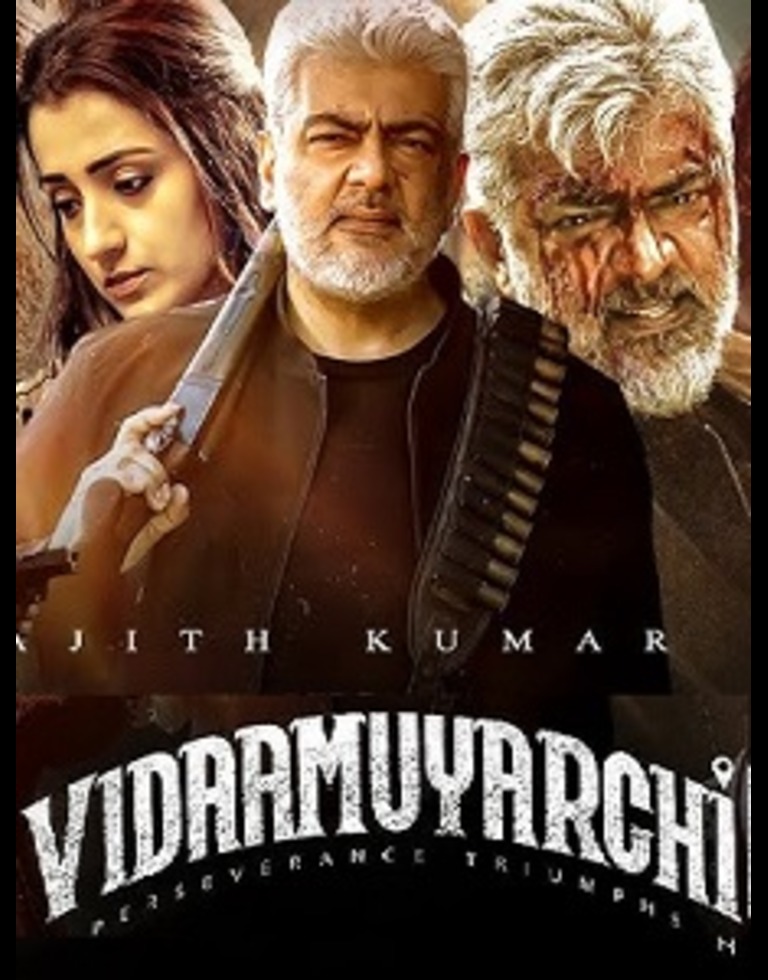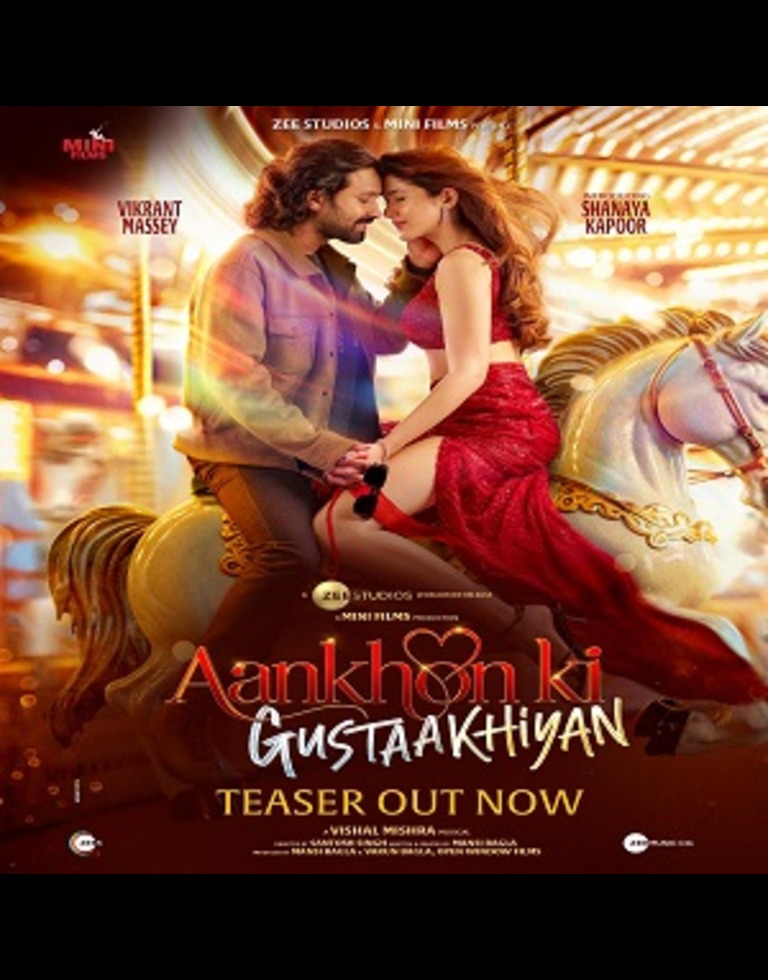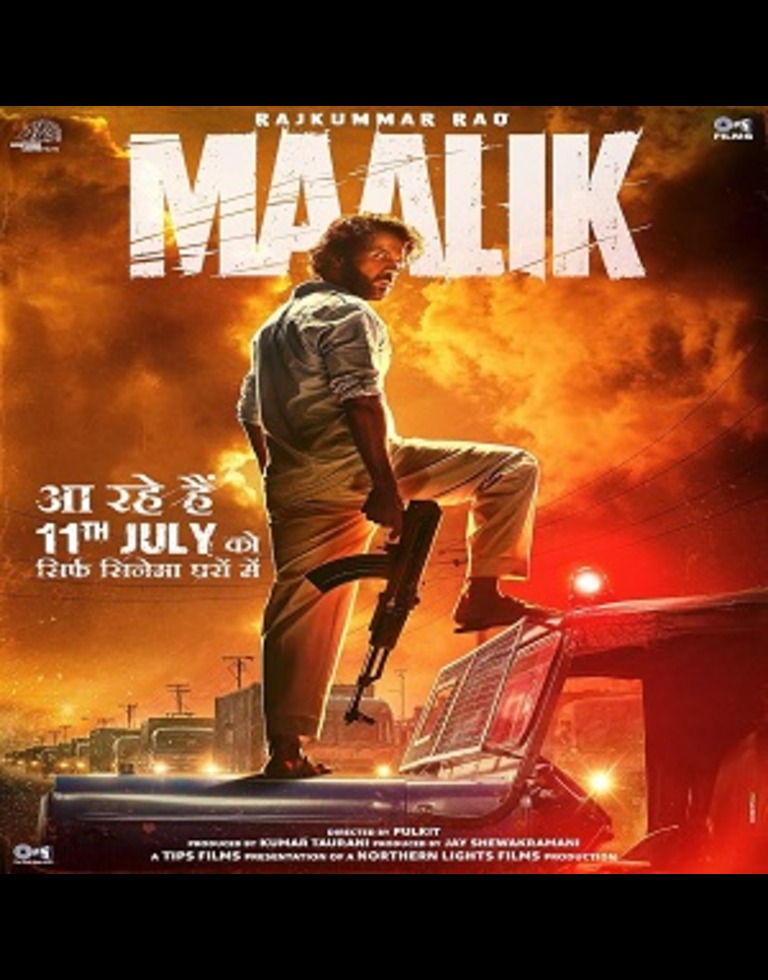

Vidaamuyarchi (translated roughly as “Strategic Ascent”) tells the compelling story of ambition, betrayal, and redemption in the corporate and political maze of modern-day Chennai. Directed by Arun Subramaniam, the film explores how one person’s quest for success can impact lives far beyond their own.
🧩 Premise & Plot
Aravind Narayanan (Jayam Ravi) is a middle-class manager at a petrochemical firm. Ambitious and principled, he believes in merit but grows disillusioned as he watches colleagues with strong political backing ascend faster. Fed up, he resigns and starts his own eco-friendly energy startup. This move triggers a bitter rivalry with his former boss, Vikram Prakash (Prakash Raj), now aiming to launch a major IPO and expand his empire.
Aravind’s startup faces uphill battles—funding struggles, bureaucratic red tape, and media skepticism. He forms a partnership with Madhurima, a research scientist played by Aishwarya Rajesh, whose pioneering technology could revolutionize energy storage. Their relationship grows into mutual respect and tension; he’s focused on impact, she’s wary of his shortcuts.
The film escalates when Vikram, backed by corrupt politicians, threatens Aravind’s patent rights. What follows is a battle of wits rather than sheer force: boardroom confrontations, media leaks, courtroom drama, and complex public narratives. A turning point occurs when Aravind publicly exposes corporate malfeasance and highlights Madhurima’s breakthrough innovation. A dramatic sequence sees him rally grassroots investors and employees in a pitch that doubles as protest—a potent blend of business savvy and public accountability.
In the final act, Iliya, a disgruntled junior manager at Vikram’s firm, defects and reveals internal emails implicating executives in suppressing clean technology. The courtroom scene where Aravind and Madhurima argue for green patents becomes a moral supercut: ambition aligned with purpose. The film ends with their startup going public—humble start-ups turning into agents of change—while Vikram walks away embittered but reflective.
🎭 Performances
-
Jayam Ravi portrays Aravind with confidence and charm. His transformation—from hopeful professional to emancipated business leader—is textured: small hesitations, clenched resolve, and eventual triumph are believable. He brings vulnerability to early setbacks and emotional resilience to later victories.
-
Aishwarya Rajesh offers a grounded performance as Madhurima. Her scientist’s pragmatism and moral struggle—do you commercialize innovation or preserve it for the public good?—feel authentic. Her chemistry with Jayam Ravi’s character is understated but compelling.
-
Prakash Raj makes a standout corporate antagonist. He is not a cartoon villain—he believes in growth by any means, though his ethical compass is skewed. His boardroom precision and simmering menace elevate tension in confrontations.
-
Kishore as Iliya, the whistle‑blower, is well‑cast—a jittery, principled man whose defection brings the narrative home. His scenes of confession—marked by small sobs and visible fear—feel earned.
-
Supporting cast players—such as Aravind’s optimistic co‑workers, rebellious student activists, and a hard‑nosed journalist played by Simran—populate the film with believable motives and occasional comic relief.
🎬 Direction & Screenplay
Arun Subramaniam’s narrative is taut, building tension through escalating conflicts: promotions, betrayals, suitcases of evidence, courtroom revelations. The film avoids melodrama: even emotional scenes—Aravind hugging his elderly father after a failed meeting, Madhurima’s tears over stolen documents—feel measured and unsentimental.
The screenplay, co‑written with Vivek Anand, dials in corporate artifice without losing sight of human cost. Lines like “values aren’t printed on your business card” and “innovation without integrity is hollow” give it thematic weight. Some pacing hiccups occur mid‑film when subplots—like the student activism angle—temporarily distract from the main narrative, but the final resolution pulls them together satisfyingly.
🔊 Technicalities & Tone
-
Cinematography by M. Saravanan captures the vibrant yet tense world of Chennai business—glass buildings, stormy courtrooms, humid street protests—juxtaposed with intimate interiors (Aravind’s home, Madhurima’s lab). Visual palette shifts mirror the emotional tone: muted mid‑film, warmer during triumph scenes.
-
Music & background score lean toward atmospheric motifs—low drones underpin suspense sequences, and minor chords highlight ethical dilemmas. A couple of soft romantic tracks appear between the leads but the film remains genre‑driven.
-
Editing is crisp, with boardroom scenes intercut with protest footage, revealing email threads over graphics and highlighting public sentiment. The court sequence is tight, dramatic, but too clean—idealized rather than corrupt.
⚖️ Strengths & Weaknesses
Strengths:
-
Politically and ethically engaged: A modern story about business ambition that embraces accountability.
-
Strong lead pairing: Ravi and Rajesh form a credible professional and emotional alliance.
-
Prakash Raj’s antagonist: A nuanced portrayal of greed and regret.
-
Relevant themes: Clean energy, whistle‑blowing and public responsibility resonate in every economy.
Weaknesses:
-
Mid‑film pacing drift: Subplots wander briefly before returning to main stakes.
-
Court climax feels optimistic: A bit idealistic—real-world corporate trials seldom resolve so cleanly.
-
Technical jargon: Some dialogues overload with patent law or startup terminology, which may bewilder casual viewers.
🎯 Final Verdict
Vidaamuyarchi (2025) is a refreshing corporate political thriller with heart—an intelligent tale of ambition tempered by conscience. Its strengths lie in layered performances, ethical gravitas, and a we‑can‑do‑better thematic arc that speaks to contemporary audiences.
Although it occasionally slows mid‑narrative and ends with a note of idealism that borders on wish‑fulfillment, the film maintains its integrity by championing transparency, innovation, and moral courage.



